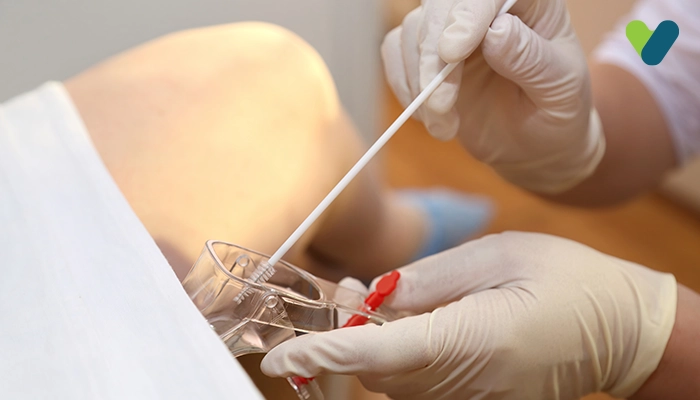Although many people are under the impression that frequent visits to the ob-gyn and aggressive testing only begins in the third trimester or only when something goes wrong, this is not the case. Testing, screening and overall care for the foetus must begin from the first trimester itself. You must care for your foetus from the very start of your maternity journey, as you can probably imagine, and this can be achieved by testing and screening.
In this post we will cover some of the important bases with regards to first trimester maternity tests, such as why we test, the type of tests and very importantly, how to make testing more affordable.
Purpose of First Trimester Maternity Tests
The tests conducted during the first trimester serve a variety of purposes such as- Determining the due date
- Evaluating the possibility of genetic disorders
So what are the maternity tests that you must do in the first trimester?
Top 6 First Trimester Maternity Tests to Try
- Historic data collection with physical exam
The ob-gyn will always ask you a series of questions about your own medical history and that of your family. This is usually for the doctor to be in the know, in case your baby is at risk of inheriting any hereditary health issues, especially genetic disorders.
If you are prone to diabetes or if your mother had gestational diabetes, this would be the time that it would come up/ that you should mention it. This is just one example of the various bases that will be covered.
Your ob-gyn will also give you a due date for the baby’s birth based on your last menstrual period.
- Pelvic exam and pap smear
These first trimester maternity tests evaluate the health of your cervical cells and rule out cervical cancer. The pap smear is also capable of screening for some types of STDs.
- Blood tests
-
- Your ob-gyn might want to reconfirm your blood type and check for immunity/ exposure to German measles and chickenpox.
- Your HCG and progesterone levels will be evaluated.
- Testing will be done to ensure that you are not anemic.
- Screening for sexually transmitted diseases like hepatitis B, syphilis and HIV.
- Ultrasound
Of course, you will have a number of sonographies and ultrasounds during the course of your pregnancy, but these tests are for specific purposes.
-
- For foetal nuchal translucency: checks the rear of the fetal neck for increased fluid or thickening.
- For nasal bone determination: checks for chromosome abnormalities
- Maternal serum (blood) tests.
These blood tests measure the levels of certain typical substances that are found in the blood of a woman who is pregnant:
-
- Levels of pregnancy-linked plasma protein A are checked because elevated levels have been linked to chromosomal abnormality.
- Levels of chorionic gonadotropin, placenta hormone are checked because irregular levels are also linked to genetic defects.
- Chorionic villus sampling
This first trimester maternity test is usually recommended if any of the above tests have pointed towards genetic defects in the foetus. Chorionic villus sampling is an invasive test that can provide conclusive evidence about a selection of potential genetic disorders including Cystic Fibrosis, Down's Syndrome, Muscular Dystrophy, Haemophilia and even Sickle Cell Anemia. However it cannot spot some genetic disorders and has a minute (1%, but still) chance of causing a miscarriage. If the mother is over 35 years old, this test is often recommended.
Cost Management for First Trimester Maternity Tests
The last thing you want to be thinking about amidst caring for your baby is how you will be able to finance your maternity testing, consultation and care. It is advisable to plan your finances wisely, so that you do not feel financial strain (or have to think twice about any medical requirements). There are two ways to achieve this- Insurance: Look for insurance that covers the cost of maternity tests. Use an online marketplace like IIFL Insurance and ensure that you read the fine print so that you know what a given insurer is offering you. Online marketplaces allow you to compare what different insurers are offering you against insurance premiums. Be sure to use this feature to your benefit. If you already have insurance, double-check that maternity tests are covered. If not, ask if it can be opted for as a rider or an add-on.
- Health EMI Cards: Health EMI Cards are just like EMI Cards that let you pay for a smartphone, for instance, in 2-24 installments; you can pay for all your healthcare and testing on EMI. Many cards offer no-cost EMI, which means you do not pay any interest, just the cost of the treatment or test divided by the number of installments.


